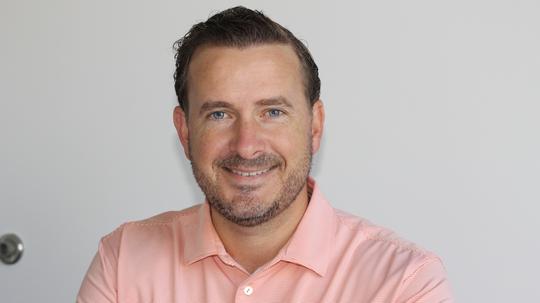
While many entrepreneurs are excited to share their success stories, most leave out the trail of failures that led them to that point. An Inno Autopsy provides a place for VCs and entrepreneurs to share their failures (we’ve all been there), because sometimes the things you learn from mistakes can be just as valuable as any funding round.
As part of American Inno’s Autopsy feature, where our writers across 14 markets hold an honest Q&A with founders about their failed businesses and ideas, I sat down with Jared Pope, founder and CEO at Work Shield, to learn about how it all happened with his previous venture Output Health.
Pope co-founded Output in 2011. The company focused on providing a cloud-based platform for commercial data exchange in the healthcare industry. The business closed in 2018. Since then, Pope has gone on to co-found HR Cubed, an automated HR software provider before starting Work Shield. He is also the managing shareholder at the Pope Legal Groupe, a HR and benefits boutique law firm.
NTX Inno: Why’d you launch the business; what did it do?
Jared Pope: MDHE, d/b/a Output Health was originally launched back in 2011 to help employers manage the health of their employee population – in other words, population health management (PHM). Our platform had the ability to take data from one disparate source and connect it to another disparate source. The company was founded by three individuals.
NTX: Biggest Milestone / Success?
JP: We reached $1M+ in revenue and secured some big clients and partnerships.
NTX: A year before shuttering, describe the state of the business/brand.
JP: A lot of companies were getting into the population health management platform, if not already. There was a sense of having to change/adapt to keep up. Also, the original CEO and main founder, was struggling to bring in sales and keep his performance pay, which caused internal struggles amongst the teams.
"You sometimes want to go to your deepest corner, but you have to hit it head on and understand that failures happen."
NTX: What happened?
JP: The company decided to pivot to certain aspects of the PHM model and try to expand market share with expanded services, which took time and resources away from continually to build the core product. Unfortunately, that didn’t work. In the end, the company parted ways with the CEO and, while dealing with internal aspects, the market changed during this process and the space got super crowded. We didn’t have any “first mover” advantages any longer and were competing against larger resourced-back entities. As such, the company double-downed and put its “eggs in one basket” with a client and expand from there. Then, rightfully or wrongfully, that client went out of business.
NTX: What were some early warning signs?
JP: Leadership does not come from one person, but from the whole team. It’s one thing to surround yourself with teammates smarter than you, but if you don’t listen to them, what’s the point, right?
NTX: Could the end have been avoided? How?
JP: Absolutely. How – by focusing on your core services and product that was the base of the company!
NTX: If you had to in just two sentences, what would you label as the cause of death?
JP: Well, not being open to the ideas and insight/thoughts of the whole leadership team. Outside of that, I would say having too many eggs in one basket and not being diversified enough from a client perspective!
NTX: What were your biggest lessons learned from the experience?
JP: Trust your gut! Also, it’s never as bad as it may seem, just like it’s not as good as some people may believe. You have to make sure you control what you can control and not worry about whatever else is out there!
NTX: Describe your current business through the lens of the shuttered one; what’s different?
JP: The current company relies on experience, innovation and simplicity. Although it may use the same distribution channels (i.e, consultants, brokers, channel partners), it’s a different product that has gained first mover advantage. Now it’s time to grow big fast with clients of varying sizes.
NTX: How did the failure personally affect you? How did you deal with it? Any advice to people going through a similar situation?
JP: It obviously impacts you. You feel bad and responsible as it relates to the investors and partners. You sometimes want to go to your deepest corner, but you have to hit it head on and understand that failures happen. It’s how you get up from such failures that define you, not the fact that you failed at a particular venture. My advice to others – it will all be okay! As stated above, it’s not as bad as it may seem! Learn fast and act on those lessons.
If you would like to participate in Inno Autopsy, contact Kevin Cummings at kcummings@americaninno.com.








